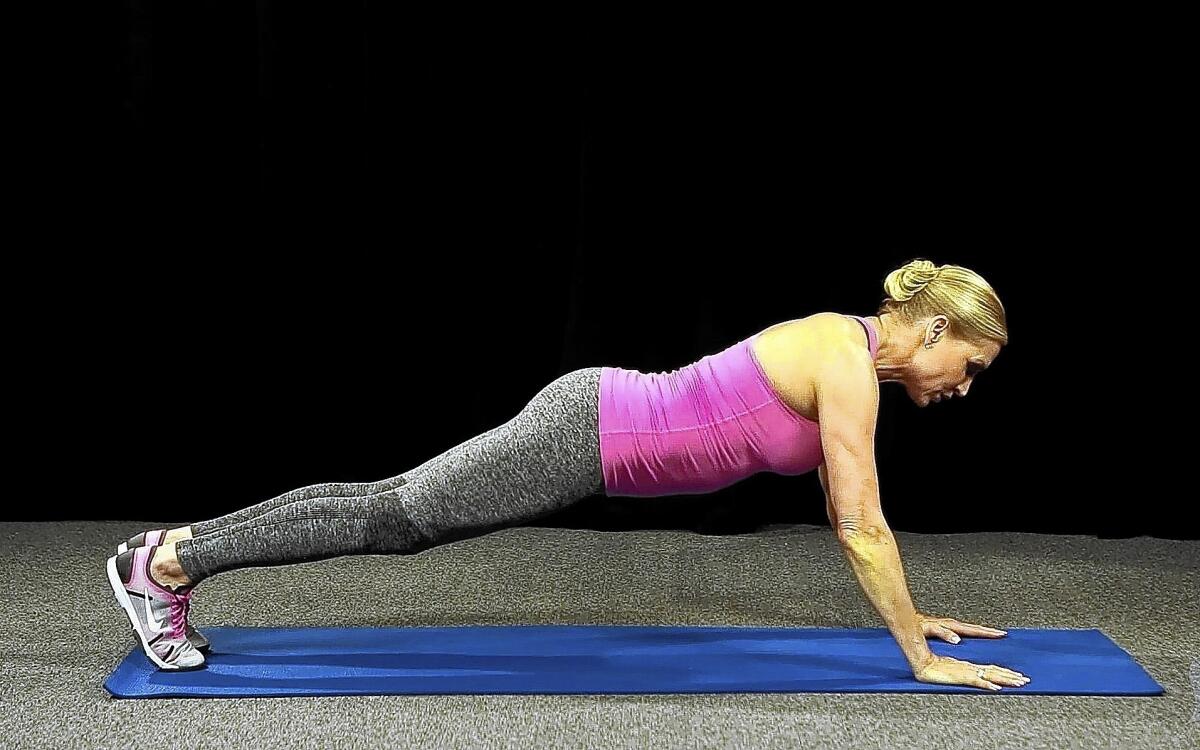Plank position for beginners

We all know plank position is good for us. But. Um. What if you lack the core strength needed to suck in the gut and engage the back, glutes and quad muscles — all while balancing between your toes and elbows?
Answer: You slowly and carefully work your way up to it, says fitness expert Tosca Reno, author of the new book “The Start Here Diet.”
What it does
Plank position puts nearly every muscle in the body to work, especially the abs. It also helps create a mind-body connection as students learn to use opposing muscles to hold the position. It’s especially important to keep the middle from sagging, as that can put too much pressure on the lower back.
What to do
In traditional plank, students perch long and strong from their toes to their elbows, pulling in their abdominals and tightening the shoulders, back, glutes and hamstrings — and then hanging on for dear life.
Beginners, however, will still get a good workout by:
1. Using a towel or exercise mat for cushioning and assuming the plank position while resting on the knees. Use this movement to familiarize yourself with the exercise and the muscle engagement at play. When that feels easy, challenge yourself by lifting the feet or move on to the second progression below.
2. Moving into plank pose while maintaining straight arms, positioned directly under the shoulders, with a slight bend in the elbows. (Locking elbows can put too much stress on the joint.) When comfortable, students can lower themselves to the ground and then safely move into the traditional plank position with elbows resting on the floor.
How much
Perform plank two to three times a week. Begin by trying to hold the plank variations for 15-second increments. When you can hold the position for one minute for three or four rounds, with a brief break between rounds, you’re ready to move on.
And when you can hold traditional plank for a minute or so, you’re ready for “fun add-ons,” Reno said.
Such as alternating knee to elbow or plank with leg lift.




